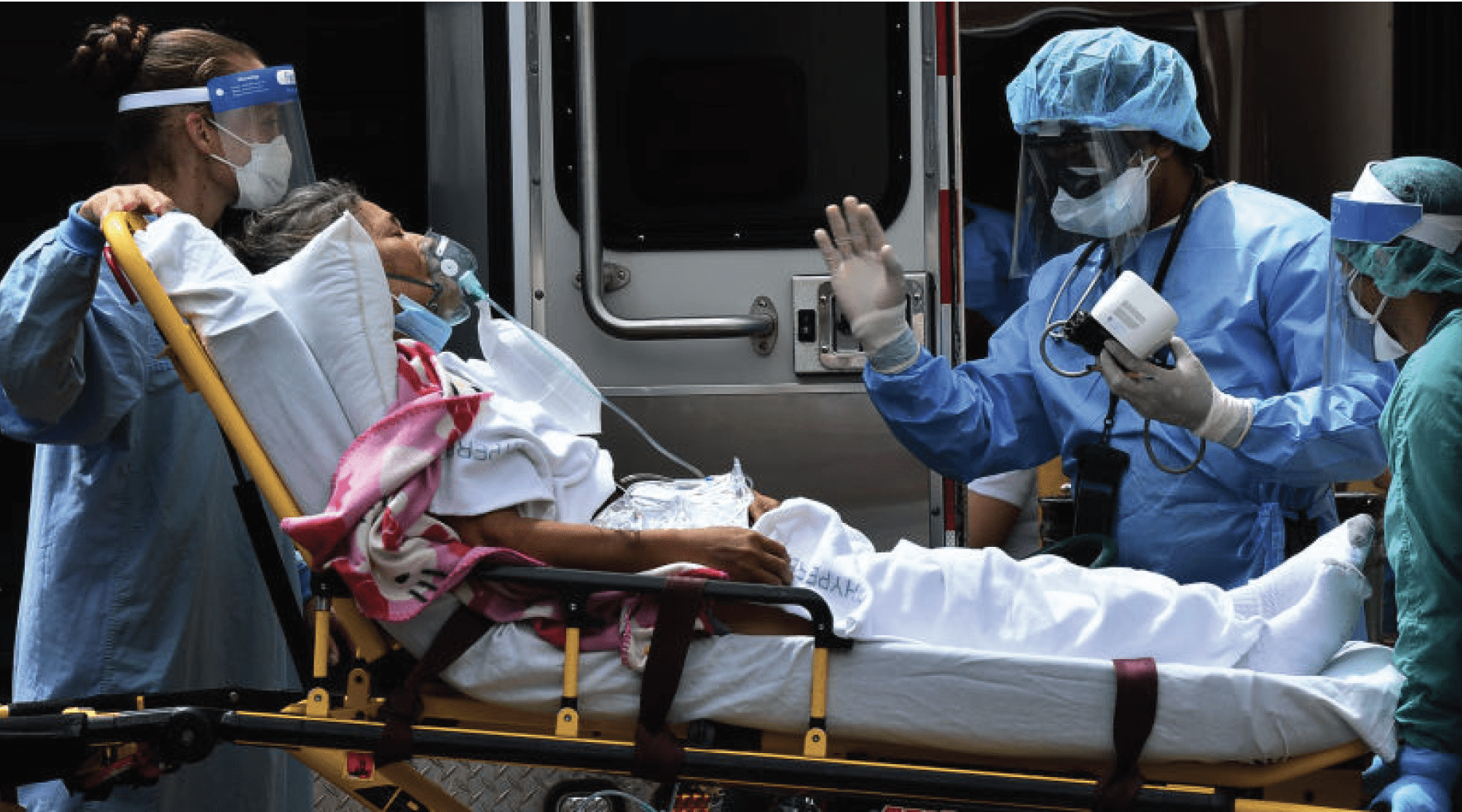As the coronavirus sweeps across the U.S., it’s hit Black, Hispanic and Native American populations hardest, with members of these communities dying at higher rates than whites. “There’s an urgent need to develop strategies to better identify patients who are likely to experience mild versus severe symptoms of this disease to optimally allocate healthcare resources,” says OMRF immunologist Dr. Linda Thompson. “A key factor in understanding this lies in knowing how immune response varies in different ethnic groups.”
In June, Thompson and OMRF colleague Dr. Mark Coggeshall secured a two-year federal grant to study the immune system’s response to the virus and how it differs among people of different ethnicities. The project also aims to understand if the immune response is protective against future infections—or if it might worsen them.
That work will build upon studies OMRF scientists have been conducting for more than a decade as part of an ongoing effort to understand another potentially deadly pathogen. “Our existing research on anthrax has a developed infrastructure to study immune response to a serious viral infection,” Thompson says. “So, we were set up to start this project without having to develop new methodology.”
The new funding comes as a supplement to a grant awarded to OMRF to study the immune system’s response to anthrax bacteria as part of the National Institutes of Health’s Cooperative Centers for Human Immunology. That anthrax project will serve as a launchpad for working with Oklahomans eager to help combat the coronavirus.
“OMRF has a strong history and wonderful partnerships throughout the state,” says Thompson, who holds the Putnam City Schools Distinguished Chair in Cancer Research. “That should enable us to quickly obtain blood samples from those who have been exposed to or infected by the coronavirus.”
The researchers will analyze blood donated by volunteers to understand individuals’ differing immune responses to the virus. They’ll search for biological clues that might identify those individuals most likely to experience a severe response to coronavirus infection.
The project will also study the roles and reactions of antibodies that form in the immune response to infection to the virus known technically as SARS-CoV-2. “Specifically, we need to know if antibodies help fight the virus,” says Coggeshall, the Robert S. Kerr Jr. Endowed Chair in Cancer Research at OMRF. Work will focus on a phenomenon called antibody-dependent enhancement, where instead of protecting people from future infections, antibodies could actually make them worse.
“We have to understand all aspects of the body’s immune response and which ones correlate to good health outcomes, and we also need to know how these vary in different ethnicities,” says Thompson. “This knowledge gap needs to be filled quickly to inform vaccine trials, some of which are already underway.”
She also sees a chance to harness OMRF’s expertise in immunology to benefit populations who stand particularly vulnerable to the impact of the virus. “We wanted to do something in Oklahoma that nobody else could do.”
Coggeshall, for one, relishes the opportunity to undertake the new project. “Our anthrax work is promising and important, but all research efforts right now should be on SARS-CoV-2 and Covid-19,” he says. “There is no more urgent issue to study in the world, and we will do everything we can to help.”
—
OMRF is actively recruiting individuals for Covid-19 antibody testing, especially people with health conditions that put them at high risk for severe complications, those with Native American heritage, and those who know or suspect they have recovered from the virus. If you’re interested in participating, please call 405-271-7745 or email Jackie-Keyser@omrf.org.



